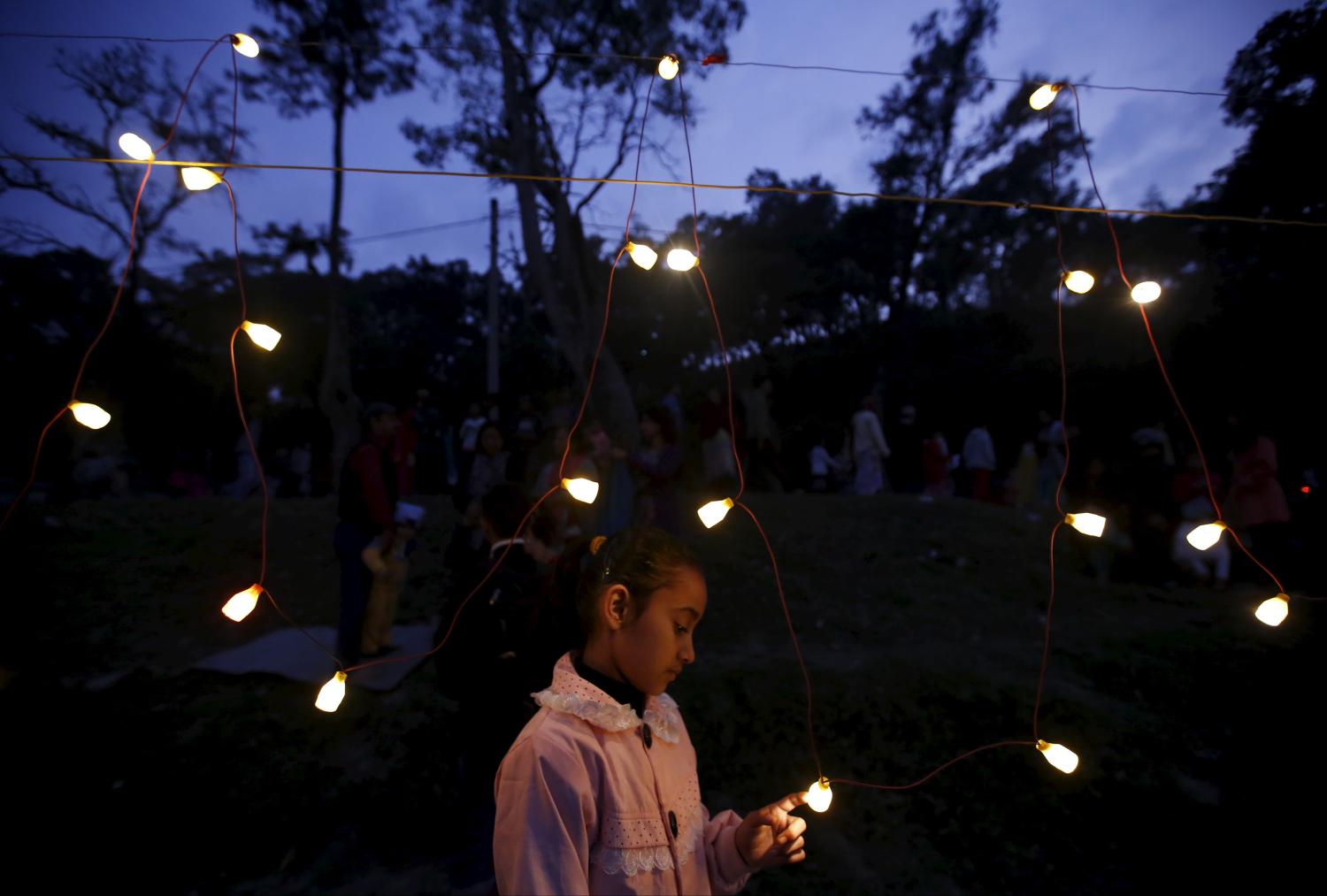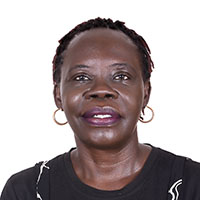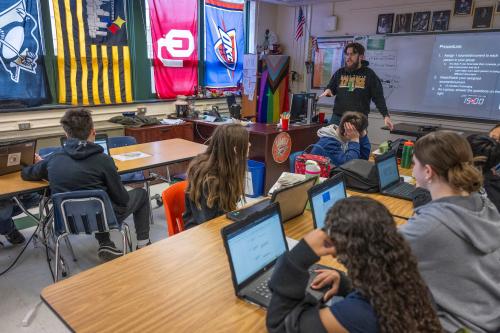Education gave me the courage to speak up for myself and my community against the gender injustices following two decades of conflict that left hundreds of people displaced. Despite its memories remaining fresh in my mind, they have always been my inspiration to continue fighting for girls' right to education. This is because education, especially for a girl child, is a powerful tool for change
37-year-old woman, Kitgum district, northern Uganda, 2025
For many women and girls in post-conflict northern Uganda, teenage pregnancy, early marriages, poverty, gender norms, and fragile systems exacerbated by the impact of war continue to prevent them from accessing quality education. Even when they can access school, the exam-focused system often fails to prepare them or address their real-life challenges. Given the systemic barriers they face, what they need is not just formal education, but a learning approach that not only equips them with practical abilities to earn, lead, and survive, but also centers equity, agency, and rights, enabling them to make informed decisions about their long-term dreams. My research as an Echidna Global Scholar at Brookings will explore what such a justice-oriented, skill-based education model would look like for women and girls, particularly in post-conflict northern Uganda. My goal is to understand how education could better address the deep-rooted social and economic inequalities faced by women and girls in the region.
Why education must go beyond exams
Uganda’s education system has long been criticized for prioritizing test scores over practical learning. In northern Uganda, a region still grappling with the aftermath of conflict, this approach is even more limiting. Exams alone cannot measure or provide the resilience, skills, or well-being that girls need to navigate daily social and economic challenges. Uganda’s Ministry of Education and Sports has recognized the shortcomings of exam-driven learning, stressing in its TVET Policy (2019) the need for practical, job-relevant skills. Similarly, in 2017, the Ugandan president launched the Presidential Initiative for Skilling a Girl Child to offer practical skills to girls; this public commitment to skills-based education was reaffirmed with the recent opening of the Bunyoro Skilling Hub.
These efforts are key to the promotion of a girl child education as well as wealth creation, because they provide learners with more relevant and hands-on skills than the largely exam-oriented Formal Education System. These public initiatives have been complemented by programs such as the Young Africa Works project, supported by MasterCard, or the Skills Development Program implemented by FAWE-Uganda.
Post-conflict northern Uganda
Post-conflict northern Uganda has experienced ongoing socioeconomic and cultural challenges stemming from decades of civil war. Among the most affected are women and girls, who continue to suffer from social injustices like gender-based violence, limited access to education, economic marginalization, and high rates of teenage pregnancy. Despite the government’s policy of school re-entry for adolescent mothers, most do not return. As a result, many girls are left struggling with significant challenges to their survival and prospects. Formal education has not adequately addressed these real-life issues, since it offers limited pathways for practical empowerment.
The Acholi region —the epicenter of the conflict —has only one government skill-based education institution, which is located in Gulu District but serves more than 10 districts. The region also has a handful of NGO aided skill-based institutions provided by the Salesian Mission of Don Bosco (SDB), all of which are located in Lamwo District. These training centers offer various Vocational Training Initiatives; however, being located in the heart of the largest refugee settlement in Uganda, these training centers have been insufficient to meet the academic demands of the large number of youth from South Sudan and Uganda who seek to enroll each year. In addition, they sit within two districts, making it challenging to serve those from other districts in the region.
In addition, many existing skill-based programs in the area are limited to short-term (2-6 months) vocational training to prepare participants for employment or enabling them to create small businesses for survival, with little emphasis on building girls’ agency or rights or addressing long-term, gender specific goals and empowerment. This is often due to funding constraints. Besides, many vocational training programs in the region lack links to market opportunities, which continues to perpetuate weak community resilience, unemployment, and cycles of poverty. In my work, I saw how this type of fragmented, inconsistent training did little to address the structural barriers girls face.
What might a justice-oriented approach look like, one that starts by identifying women’s and girls’ needs, agency, and rights, and that focuses on addressing structural barriers and driving transformative change?
What is known, and what are the gaps
Uganda has made progress at the policy level in promoting girls’ education, but challenges persist. Policies like Universal Primary Education and Universal Secondary Education, introduced in 1997 and 2007 respectively, have led to an increase in enrollment rates from 2.5 million in 1996 to over 8.6 million in 2023, with net primary enrollment for girls and boys currently over 100%. Participation in secondary education, on the other hand, has declined in recent years, and currently only about 1 in 4 children of secondary school age are enrolled in school. Challenges, including poverty, child marriage, teenage pregnancy and gendered expectations, remain significant barriers to girls’ education at this level, as daughters often become a source of income for struggling families. Additionally, inadequate access to sanitary products and clean facilities further hinders girls’ ability to remain in school. In an attempt to address these issues, the government has made efforts to expand skill-based education by implementing policies and embracing partnerships with NGOs. However, these skill-based initiatives are limited, short-term, and rarely integrate gender equality, rights, or long-term empowerment.
What could be the solution?
Skill-based education may hold potential to empower women and girls to achieve their right to education. Given the structural challenges they face, however, it is imperative that we better understand what kinds of skill-based education could best address social inequalities, promote sustainable livelihoods, and contribute to building transformative agency among women and girls. My research seeks to capture the complexity of post-conflict northern Uganda and generate insights that can inform more justice-oriented, skill-based, and gender responsive education policy and programming. Practical education tailored to their needs could equip girls with tools to challenge systemic inequalities, foster entrepreneurship, and enhance employability. When women and girls have relevant skills, they will be able to actively participate in decision-making processes and contribute to rebuilding their communities.
As an Echidna Scholar, my research will center the lived experiences, voices, and aspirations of girls and seek to build a justice-oriented approach to skill-based education grounded in their priorities and perspectives. I will employ a qualitative approach, engaging girls aged 15-24 directly through focus groups, participatory workshops, and storytelling methodologies. At a time when the region is slowly being rebuilt, with education recognized as a critical component of this process, this research will lay the groundwork for practical projects that bridge the gap between education, justice, and economic empowerment, enabling women and girls in northern Uganda to thrive in the post-conflict era.
The Brookings Institution is committed to quality, independence, and impact.
We are supported by a diverse array of funders. In line with our values and policies, each Brookings publication represents the sole views of its author(s).





Commentary
Empowering women and girls in post-conflict northern Uganda through skill-based education
September 23, 2025